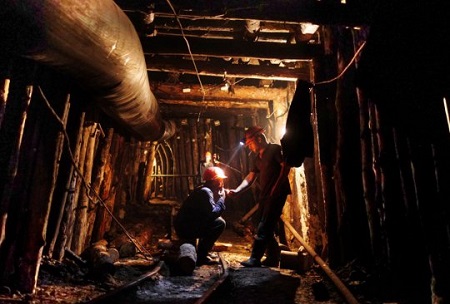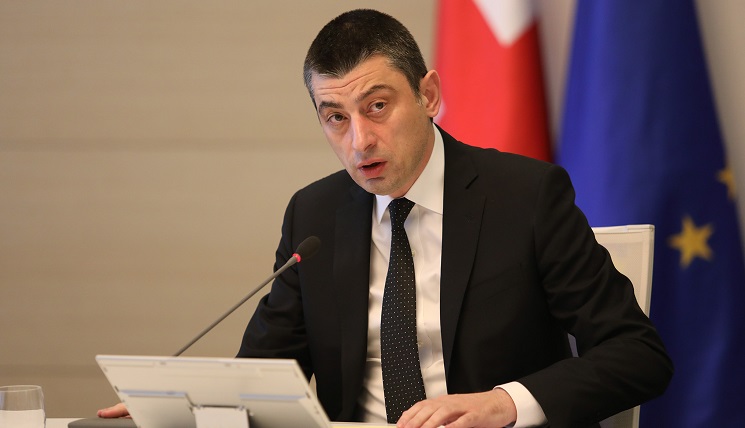Two Georgian miners gravely hurt in mine explosion

Two Georgian miners are in hospital with serious injuries after a controlled mine explosion "went wrong” in the country’s central Imereti region.
Chiatura Mine shift manager Tariel Bitsadze, 50, and explosives expert Zurab Gamezardashvili, 26, were working in the mine in Perevisa village yesterday, conducting a controlled explosion when they were badly injured.
The men suffered major burns to more than 20 percent of their bodies and severe trauma to their eyes and eyesight, doctors said today.
Bitsadze and Gamezardashvili were transferred to Tbilisi for immediate medical treatment.
Doctors did not provide any information on the two men’s conditions before they were rushed into the operating theatre however it is understood both men suffered major trauma to their eyes.
Head of the Professional Union for Metallurgists, Mine and Chemical Industry Employees, Tamaz Dolaberidze, wrote on his Facebook page that "one of the injured had completely lost his eyesight while the other could see only from one eye”.
Dolaberidze demanded the creation of a special commission to investigation the incident with the involvement of his professional union staff.
Georgian Manganese Holding, the company that owned Chiatura Mine and a subsidiary of British steel trading company Stemcor, released a statement that said the two men were working in the mine, carrying out explosive activities when "something went wrong”.
An investigation has been launched into the cause of the accident.
Chiatura Mine is a large mine complex located near Chiatura town in central-western Georgia in the Imereti region.
Chiatura is understood to have the largest manganese reserve in Georgia and one of the largest in the world, with estimated reserves of 239 million tonnes of manganese ore grading around 26 percent manganese metal.
The deposit was discovered in 1879 by the Georgian poet Akaki Tsereteli, who explored the area in search of manganese and iron ores.
 Tweet
Tweet  Share
Share
